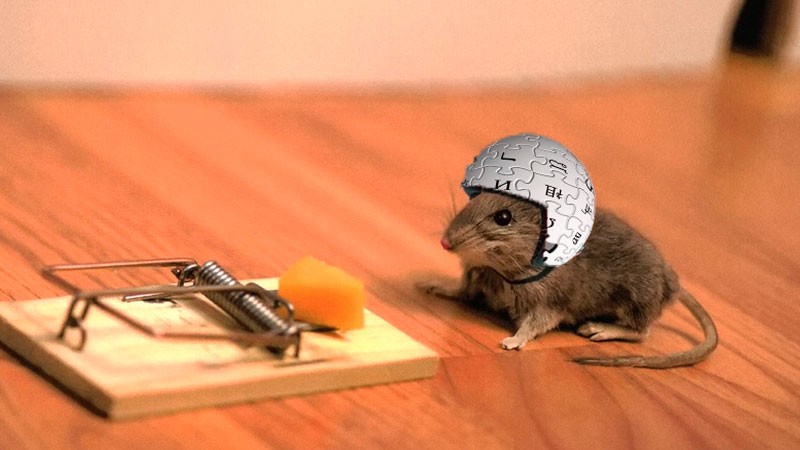
Image edited by Kevin Rothrock.
Wikipedia is trying something new in the fight against Russian censorship. On August 20, the Kremlin’s media watchdog agency, Roskomnadzor, announced that it has ordered Wikipedia to remove Russian Internet users’ access to an article about charas hashish, which a court in Astrakhan banned last June. If Wikipedia refused to comply with the order, it would be banned entirely, officials said.
On Wikipedia’s news forum, Russian users debated several different strategies regarding how to respond to Roskomnadzor’s threat. The RuNet news website TJournal collected several of these ideas, which ranged from complete compliance (some users felt the site shouldn’t host information about illegal drugs) to complete defiance. One user encouraged Wikipedia to place a banner on the Russian version’s splash page, so more of the site's users would know to expect and could understand why the resource might disappear in Russia. The banner, it was suggested, could also contain information about Web anonymizers and proxies, which Russians could use to circumvent the government’s potential ban on the site.
The court order (a scan of which is available on Wikipedia) lists the charas article’s specific URL. Wikipedia’s administrators initially said they would refuse to alter the article, at the risk of being banned in Russia. Today, however, the website made a small change to the URL of the charas hashish article, technically putting it in compliance with Russian law (insofar as the Web address identified by the Russian court no longer contains the information deemed to be illegal).
The URL specified in the Astrakhan court’s decision now leads to a list of seven different Wikipedia entries on the various meanings of the word “charas,” including information about a small island in the Indigirka River, a Central Asian type of grape, and more. The original text about charas hashish is completely intact (it’s actually been expanded), but it is now accessible at a new URL on Wikipedia.
Tension between Wikipedia and Roskomnadzor has existed for at least three years, since Wikipedia led the Russian Internet’s protest against the proposed Web blacklist, which Roskomnadzor now manages. In April 2013, Wikipedia butted heads with Russian censors again over an entry about cannabis. After suggesting it would resist the government's orders to change the article, administrators revised the text in accordance with the website’s internal quality standards, thus escaping being banned.
On Friday, August 21, after Wikipedia said it wouldn’t abide by the Astrakhan court’s decision, Roskomnadzor published a second note on its official Facebook account, lamenting the Wikipedia's choice to “enter into a conflict with Russian law enforcement.” According to Roskomnadzor, Wikipedia seemed to want the Russian government to ban it.
According to Russian law, websites have three days to comply with orders from Roskomnadzor, before being added to the government’s Internet blacklist. Wikipedia says it received the takedown notice on Tuesday, August 18, at 4 p.m., meaning that censors could have followed through on their threat to block the website on Friday afternoon. (It's unclear why they did not.)
On August 20, when Roskomnadzor publicly announced that it had ordered Wikipedia to remove Russian Internet users’ access to the charas hashish article, the agency warned that Wikipedia would be blocked in its entirety, even though the offending content was just a single article. Roskomnadzor said the need to block Wikipedia completely was the result of the site’s use of https protocol, which complicates the process of banning specific pages within a website.
Wikipedia is far from the only website that uses https, however, and it’s not certain why Roskomnadzor implied that blacklisting one Wikipedia page would necessarily block the entire resource. According to Roskomnadzor’s own information, only 30 percent of Russian Internet providers are incapable of blocking specific pages on websites using https.




1 comment